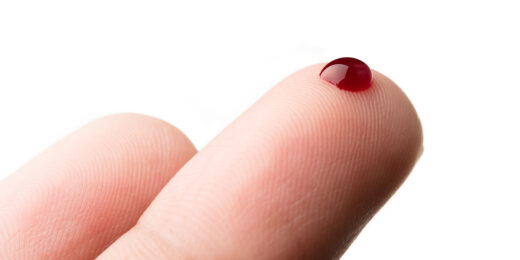After writing about my blood phobia -- and what I did to tame it -- in the spring 2013 issue of Stanford Medicine, I was surprised …
Latest
New research shows how to keep diabetics safer during sleep
Life with type 1 diabetes requires an astonishing number of health-related decisions - about 180 per day. But patients' vigilant monitoring of their daytime blood sugar, …
Dick Cheney on his heart transplant: “It’s the gift of life itself”
Dick Cheney has lived with chronic heart disease for virtually all of his adult life. At 37, as a young man running for the U.S. …
New genetic study: More evidence for modern Ashkenazi Jews’ ancient Hebrew patrimony
I hail from the so-called Ashkenazi branch of Jews, who account for the great majority of all Jews in the world today. Ashkenazis are distinguished …
Dilute bleach solution may combat skin damage and aging, according to Stanford study
Is it time to put away your fancy skin creams and moisturizers? A study published today in the Journal of Clinical Investigation by Stanford pediatric …
Mind-reading in real life: Study shows it can be done (but they’ll have to catch you first)
It's not a given that experimentally obtained results accurately reflect goings-on in the real world. The former are obtained under rigidly controlled, reproducible conditions in …
Is the worm turning? Early stages of schistosomiasis bladder infection charted
Think you've seen unattractive couples before? If you look up, you'll have the pleasure of viewing the ugliest couple you've ever seen: a male and …
Study: Expiration dates have nothing to do with shelf life of drugs
I'm one of those people who regularly goes through the medicine cabinet looking for expired medications to toss out. But a new study published in …
Not everyone can be hypnotized – and researchers are one step closer to understanding why
I've never tried it, but I've always assumed it would be difficult for me to be hypnotized. I'm somewhat of an anxious person, and it's nearly impossible to …
Examining the effectiveness of hand sanitizers
A post today on CommonHealth takes a closer look at the effectiveness of hand sanitizers when it comes to killing germs. In a thorough discussion …
The science of willpower
Contrary to popular belief, willpower is not an innate trait that you're either born with or without. Stanford health psychologist Kelly McGonigal explains more in this piece.
Stanford researchers uncover the neural process behind reaction time
Human beings who react to a stimulus with movement (say, react to a hot stove by moving their hand) can't do so instantaneously. Some neural …
Commonly used drugs can affect PSA measurement
The prostate-specific antigen (PSA) test has become a first-resort workhorse for determining whether a male patient needs to be biopsied for prostate cancer. Simply put, …














